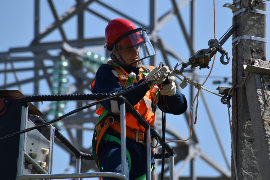Focos de atención
Power Line Technician, Electrical Technician, Electric Utility Technician, Substation Technician, Energy Maintenance Technician, Power System Technician, Electrical Field Technician, Power Plant Technician, Renewable Energy Technician, High Voltage Technician, Transmission Technician, Distribution Technician, Electrical Lineman, Energy Inspection Technician, Energy Repair Technician, Electrical Installer and Repairer, Electrical Equipment Installer/ Repairer
Nuestro mundo funciona con electricidad. Pero, ¿de dónde procede toda esa energía eléctrica? En la actualidad, el 60% de nuestra energía eléctrica se genera a partir de combustibles fósiles, principalmente carbón y gas natural. El resto procede a partes iguales de la energía nuclear y de energías renovables como la eólica, la hidroeléctrica y la solar.
Técnicos de generación/distribución de energía, mantenimiento, inspección y reparación (o técnicos de sistemas de energía, para abreviar) es un término amplio para los trabajadores que garantizan el buen funcionamiento de nuestros sistemas de energía eléctrica.
Como técnicos de pruebas eléctricas de campo, sus funciones pueden incluir el mantenimiento, la inspección y la reparación de los equipos eléctricos que producen energía (normalmente en centrales eléctricas, subestaciones, patios de maniobras o parques solares y eólicos).
Como instaladores y reparadores de líneas eléctricas, se encargan del mantenimiento de las líneas eléctricas que transmiten la electricidad desde sus puntos de origen en todo el país hasta todos nosotros, los usuarios finales, estemos donde estemos. Esto implica gestionar la infraestructura de la red eléctrica y sus transformadores, subestaciones y red de líneas de distribución que vemos suspendidas en el aire en postes y torres.
Como distribuidores y despachadores de electricidad, son responsables de controlar y gestionar el flujo de electricidad desde las centrales eléctricas hasta las subestaciones y los consumidores, garantizando un suministro estable y continuo de energía.
Aunque los esfuerzos de los técnicos de sistemas de energía a menudo pasan desapercibidos, los resultados de su trabajo hacen que nuestra sociedad funcione día y noche.
- Contribuir directamente a la eficiencia y fiabilidad de la generación y distribución de energía.
- Garantizar la seguridad pública y el buen funcionamiento de innumerables instalaciones y hogares
- Prevención de averías e interrupciones costosas mediante trabajos regulares de mantenimiento y reparación
Horario de trabajo
Los Técnicos de Sistemas Eléctricos (Técnicos de Pruebas Eléctricas de Campo, Instaladores y Reparadores de Líneas Eléctricas, y Distribuidores y Despachadores de Energía) trabajan a jornada completa con horas extraordinarias ocasionales para cumplir los plazos de los proyectos. El trabajo implica desplazarse a obras, a veces fuera de la zona local. Pueden estar expuestos a diversas condiciones meteorológicas cuando trabajan al aire libre, y deben practicar siempre medidas de seguridad para evitar percances y lesiones.
Tareas típicas
Los técnicos de sistemas eléctricos pueden trabajar como técnicos de pruebas eléctricas de campo, instaladores y reparadores de líneas eléctricas o distribuidores y despachadores de energía. A veces hay solapamientos, sobre todo en lo que se refiere a los conocimientos y competencias necesarios.
Los distribuidores y despachadores de energía gestionan el flujo de energía desde sus fuentes de origen hasta los usuarios finales. Los instaladores de líneas eléctricas se centran en la infraestructura física de la distribución eléctrica. Los técnicos de pruebas eléctricas de campo desempeñan una función más amplia que incluye la evaluación del rendimiento y la seguridad de los sistemas y equipos eléctricos.
El grado de solapamiento de las obligaciones depende del entorno laboral específico y de los requisitos del empresario.
- Instalar equipos eléctricos como generadores, turbinas, calderas, intercambiadores de calor, sistemas de control, transformadores, conmutadores, bombas, valores, transportadores, alimentadores, sistemas de control de emisiones, sistemas de refrigeración, sistemas de baterías y sistemas de energía renovable.
- Operar el equipo y supervisar su correcto funcionamiento
- Realice el mantenimiento rutinario para mantener los equipos a un rendimiento óptimo y prolongar el ciclo de vida del sistema.
- Utilizar sensores de diagnóstico, medidores y otros instrumentos para solucionar y reparar problemas.
- Consultar manuales de instrucciones, esquemas y diagramas para solucionar problemas.
- Mantenimiento de las líneas eléctricas para garantizar el suministro ininterrumpido de energía
- Realizar inspecciones minuciosas de los sistemas para detectar cualquier fallo, daño o peligro potencial.
- Probar y calibrar los equipos según sea necesario
- Responder a cortes y emergencias para restablecer el suministro eléctrico de forma segura
- Mantener registros de todos los trabajos de mantenimiento, inspecciones y reparaciones.
- Seguir los procedimientos de seguridad establecidos para evitar percances y lesiones; llevar el equipo de protección individual adecuado.
- Coordinar esfuerzos con otros técnicos, supervisores y gerentes.
Responsabilidades adicionales
- Estar al día de la normativa del sector y de las nuevas tecnologías y procesos
- Participar en reuniones de seguridad, sesiones de formación y reuniones informativas de la tripulación.
Habilidades blandas
- Adaptabilidad
- Pensamiento analítico
- Atención al detalle
- Comunicación clara
- Mentalidad de aprendizaje continuo
- Pensamiento crítico
- Orientado al detalle
- Independiente
- Resolución de problemas
- Garantía de calidad
- Seguridad
- Buen juicio
- Trabajo en equipo
- Visualización
Habilidades técnicas
- Capacidad para interpretar y utilizar planos, dibujos técnicos y esquemas.
- Principios básicos de ingeniería eléctrica y mecánica relacionados con los sistemas de potencia
- Análisis a partir de datos de herramientas y sistemas de diagnóstico
- Familiaridad con la normativa energética, los códigos eléctricos y las normas de seguridad
- Equipos de generación de energía (generadores, turbinas, etc.)
- Matemáticas generales para calcular cargas eléctricas
- Sistemas eléctricos (es decir, redes de transmisión y distribución de energía de alta tensión)
- Recopilación de datos en informes para mantenimiento, reparación o mejoras
- Prácticas de seguridad relacionadas con los equipos de alta tensión
- Herramientas para sistemas eléctricos (comprobadores de tensión, multímetros, equipos de diagnóstico)
- Resistencia física, coordinación mano-ojo y capacidad para trabajar en altura.
- Empresas de generación de energía
- Empresas de distribución de energía
- Organismos gubernamentales
- Instituciones de investigación y desarrollo
- Proveedores de servicios de mantenimiento y reparación
El trabajo de los Técnicos de Sistemas Eléctricos repercute en la creación y distribución seguras de la energía que hace funcionar nuestras comunidades. Deben desempeñar sus funciones con un alto grado de precisión, especialmente cuando trabajan con equipos de alta tensión. El trabajo exige atención al detalle y el cumplimiento de estrictos protocolos de seguridad.
A veces el entorno de trabajo puede ser difícil, sobre todo cuando se trabaja al aire libre en condiciones meteorológicas extremas, en alturas o en espacios reducidos. Por eso los trabajadores de este sector deben estar en buena forma física. También tienen que estar preparados para responder con poca antelación a los cortes de electricidad.
Dado que la tecnología asociada cambia constantemente, los técnicos deben comprometerse a un proceso continuo de aprendizaje de cosas nuevas. Esto puede significar invertir tiempo personal en cursos de formación y certificación.
Se está produciendo un gran cambio hacia la integración de fuentes de energía renovables, como la solar, la eólica, la hidráulica y la geotérmica, en la red eléctrica del país, a medida que las comunidades apuestan por soluciones energéticas sostenibles y respetuosas con el medio ambiente.
Sin embargo, la integración de estas fuentes de energía variables en la infraestructura de red existente requiere cambios en la gestión de la red y en las tecnologías de almacenamiento de energía. La energía solar, por ejemplo, depende de la luz solar, que no siempre está disponible (por ejemplo, de noche o cuando está nublado). Por suerte, los avances en tecnología de baterías, como las de iones de litio y las de estado sólido, están haciendo que el almacenamiento de energía sea más eficiente y asequible.
Mientras tanto, la tecnología de redes inteligentes ayuda a aumentar la eficiencia y reducir el despilfarro detectando los cambios locales en el uso de la energía y reaccionando ante ellos. Esto se hace mediante la comunicación entre las empresas de servicios públicos y los clientes finales, a través de contadores inteligentes, dispositivos IoT y sistemas de gestión de la energía.
Es probable que a los técnicos de sistemas de energía les gustaran las actividades físicas y estar al aire libre en su juventud. Es posible que les interesaran los proyectos o experimentos mecánicos y eléctricos, o que simplemente tuvieran una inclinación general por las actividades técnicas y prácticas.
- Los Técnicos de Sistemas Eléctricos principiantes necesitan como mínimo el título de bachillerato o el GED. Algunos empleadores prefieren que los solicitantes tengan un título de asociado o de licenciatura, pero depende del puesto.
- Los requisitos pueden variar para puestos como técnico de pruebas de campo eléctrico, instalador de líneas eléctricas y distribuidor/expedidor de electricidad.
- En lugar de un título universitario, puede ser suficiente tener experiencia laboral pertinente en operaciones de centrales eléctricas, operaciones de subestaciones, trabajos eléctricos, fabricación de metales, montaje de tuberías o construcción en general.
- La experiencia laboral puede adquirirse a través de trabajos a tiempo parcial, prácticas, preaprendizaje en la escuela secundaria y voluntariado.
- Las carreras universitarias más comunes son ingeniería eléctrica, ingeniería mecánica o tecnología energética.
- Las funciones avanzadas pueden requerir certificaciones especializadas o un máster.
- Los cursos pertinentes pueden incluir:
- Sistemas de control
- Tratamiento digital de señales
- Máquinas y accionamientos eléctricos
- Conversión electromecánica de la energía
- Impacto ambiental de los sistemas energéticos
- Integración en la red de las fuentes de energía renovables
- Distribución de energía
- Electrónica de potencia
- Análisis del sistema eléctrico
- Tecnologías de energías renovables
- Seguridad en entornos de alta tensión
- Las prácticas y los aprendizajes registrados pueden ofrecer una valiosa experiencia práctica que a los empresarios les encanta. Según Apprenticeship.gov, entre las profesiones de aprendizaje relacionadas con la energía más demandadas se encuentran:
- Instaladores y reparadores de líneas eléctricas, con puestos de trabajo como:
* Instalador-reparador de cables
* Instalador/mantenedor de sistemas de cable
* Electricista de alta tensión
* Montador de líneas (montador de distribución de líneas eléctricas)
* Erector de distribución de líneas eléctricas
* Trabajador de líneas de transmisión
- Distribuidores y Despachadores de Energía, con puestos como:
* Despachador de carga
* Operador de subestación
* Operador de centralita (servicios públicos)
- Reparadores eléctricos y electrónicos, centrales eléctricas, subestaciones y relés, con puestos de trabajo como:
* Instalador de control de la corrosión
* Electricista, central eléctrica
* Electricista, Subestación
* Técnico de relés
- Reparadores de motores eléctricos, herramientas eléctricas y afines, con puestos de trabajo como:
* Reparador de baterías
* Montaje y comprobación de motores eléctricos
* Reparador de transformadores de potencia
* Reparador de transformadores
- Los empleados también pueden esperar recibir formación en el puesto de trabajo
- También son valiosas las certificaciones profesionales opcionales, como Técnico Certificado en Mantenimiento y Fiabilidad, Gestor Energético Certificado, certificación OSHA 10 y Certificación de Espacios Confinados.
- Debido a la naturaleza física del trabajo, los solicitantes deben estar en buena condición física
- Los trabajadores suelen necesitar un permiso de conducir válido para desplazarse a los lugares de trabajo
- Tenga en cuenta que en este campo profesional se suelen exigir comprobaciones de antecedentes y pruebas de detección de drogas.
- Busca programas acreditados en campos como la ingeniería eléctrica, mecánica o energética.
- Considere el coste de la matrícula, la ayuda financiera y las oportunidades de becas.
- Decida el formato del programa: presencial, en línea o híbrido. Ten en cuenta que algunas asignaturas prácticas deberán aprenderse en persona.
- Evaluar los índices de inserción laboral tras la graduación
- Pregunte si el programa tiene contactos con empresas locales
- Apúntate a clases de matemáticas, física, artes industriales y cursos de electricidad
- Participar en cursos de formación técnica y profesional relacionados con los sistemas energéticos, si se ofrecen. A menudo, los estudiantes de secundaria pueden participar en programas itinerantes o cursar simultáneamente estudios universitarios.
- Participar en clubes científicos escolares
- Participar en actividades físicas para aumentar la fuerza y la resistencia.
- Adquirir conocimientos prácticos mediante prácticas o aprendizaje relacionados con la energía.
- Revise las descripciones de los puestos de trabajo para conocer las cualificaciones y especializaciones actuales que buscan los empleadores.
- Nota: "Técnico de sistemas eléctricos" es sólo un título general para este amplio campo. Los títulos específicos incluyen Técnico de pruebas eléctricas de campo, Instalador y reparador de líneas eléctricas, Distribuidores y despachadores de energía, y otros.
- Ponte en contacto con una empresa energética local. Pregunta si puedes hacer una entrevista informativa con un técnico en activo o incluso seguirle durante un día o hacer una visita guiada.
- Ver vídeos y leer blogs para aprender sobre el sector
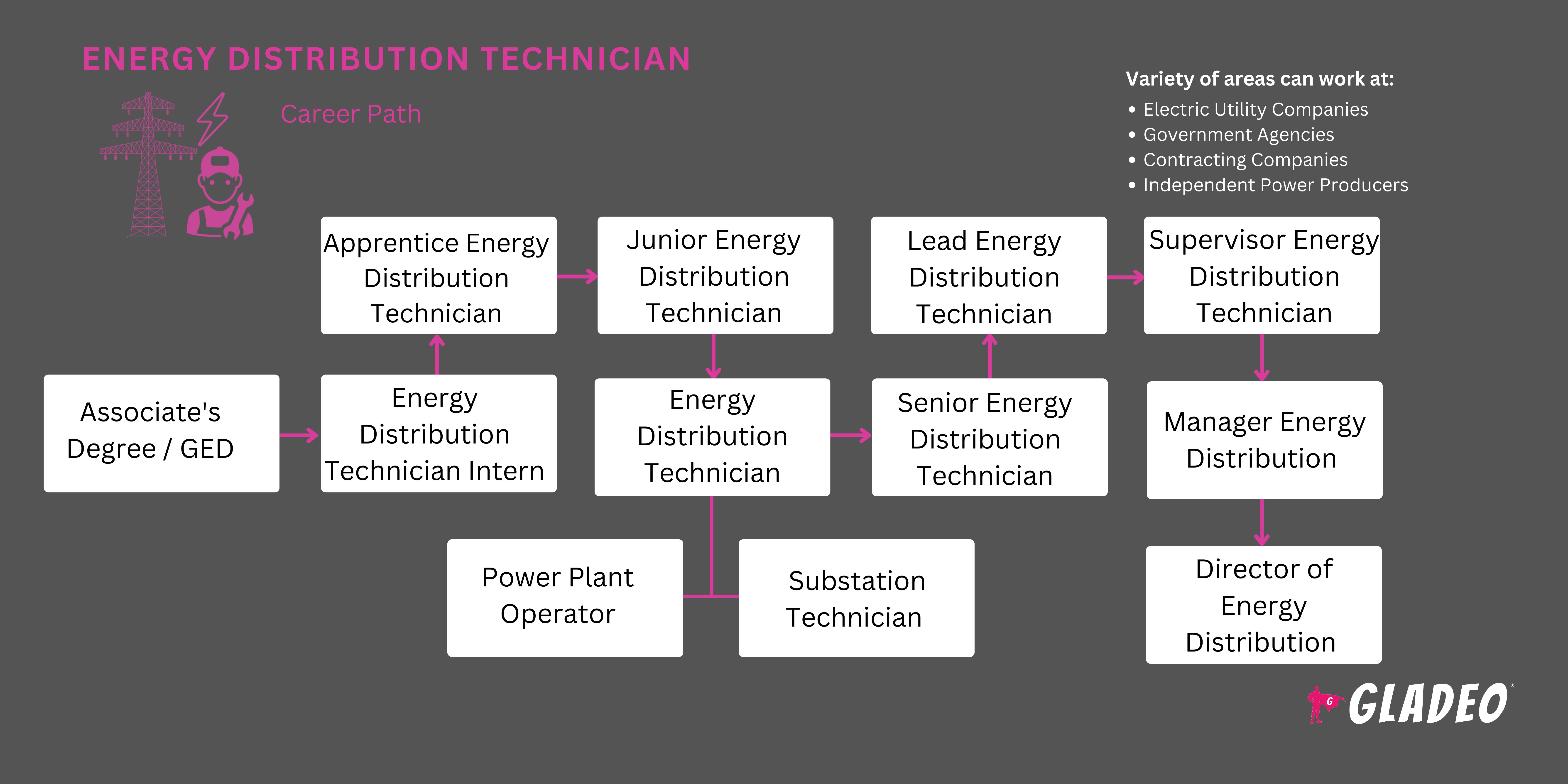
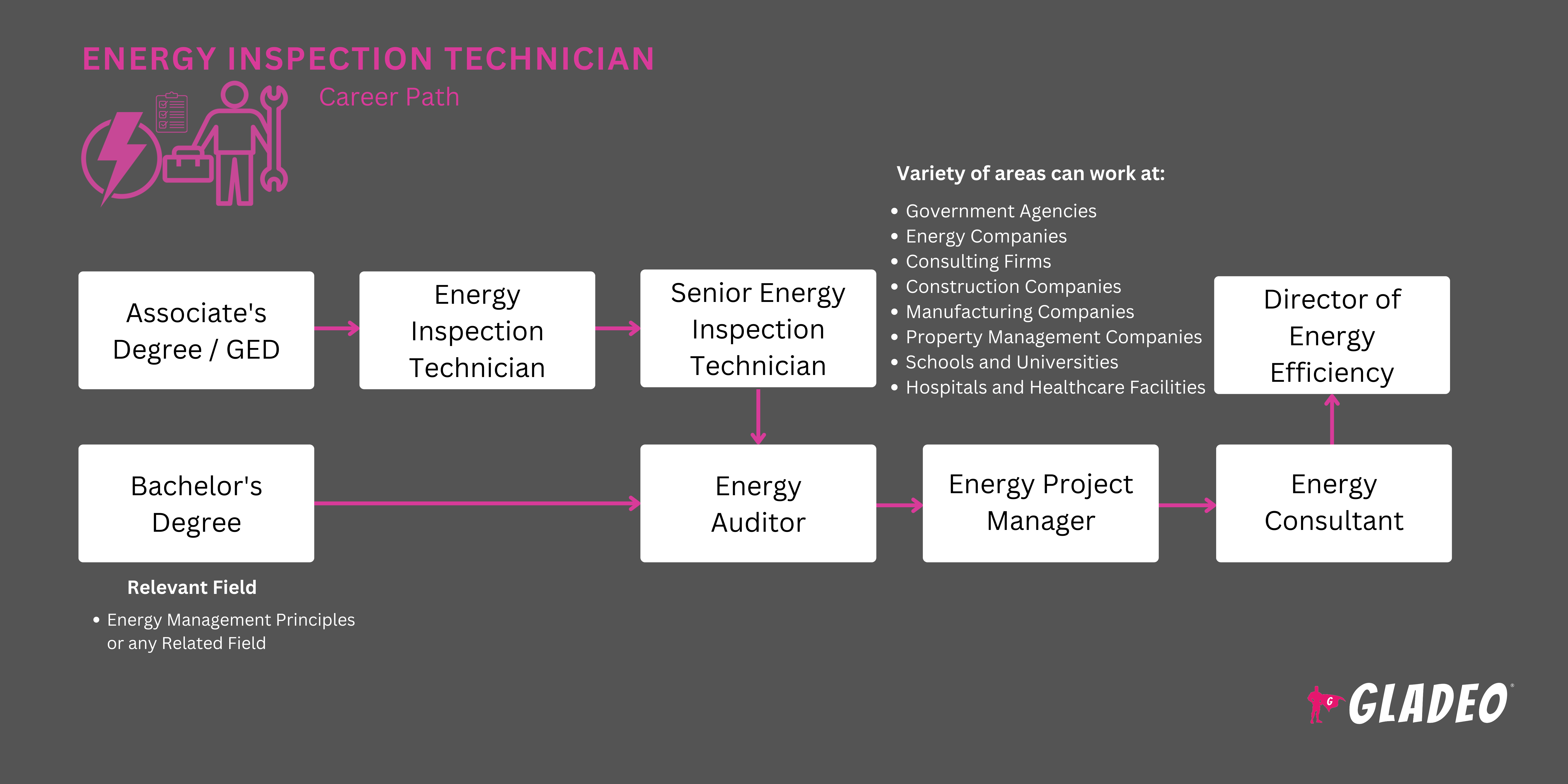
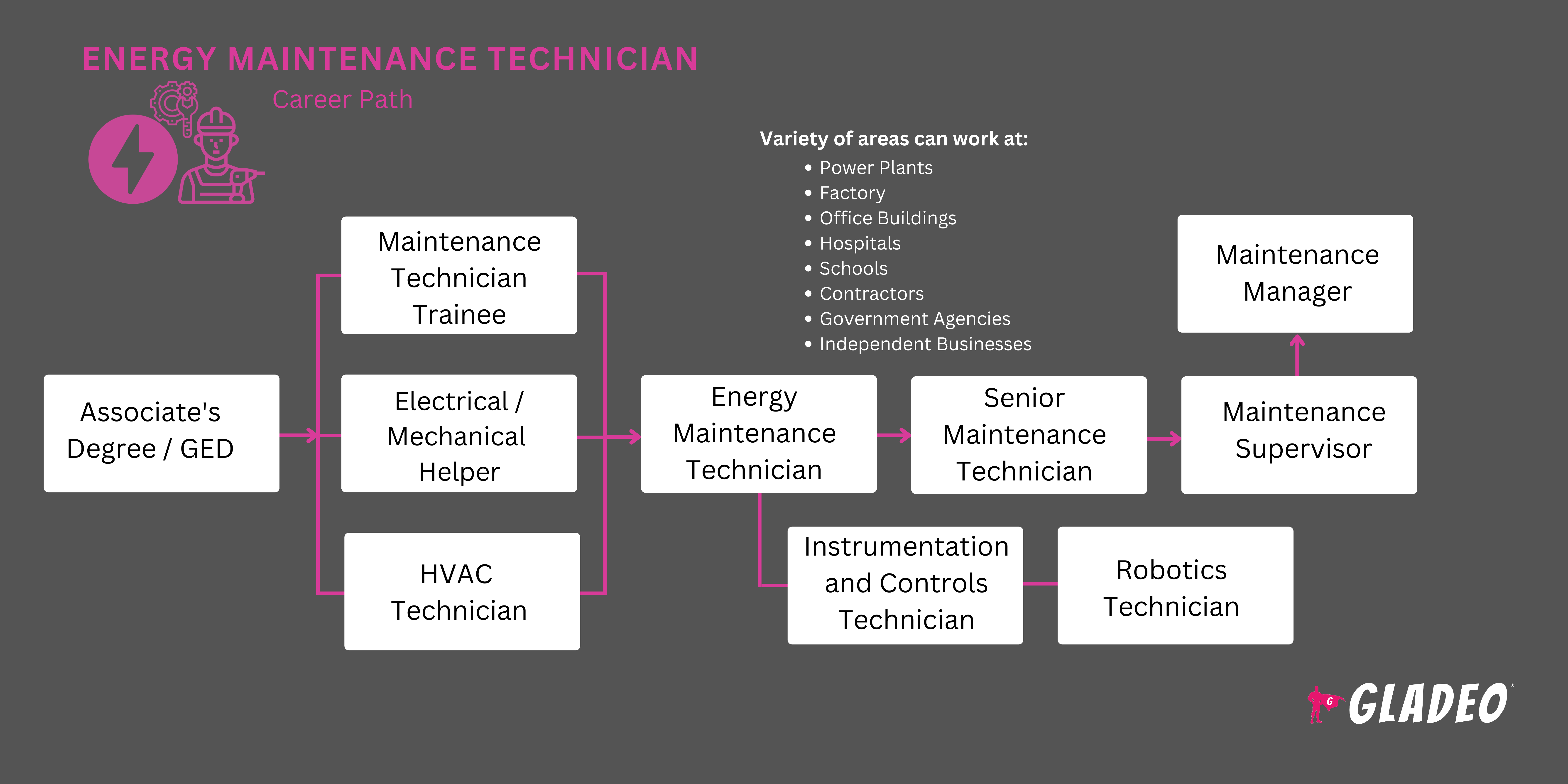
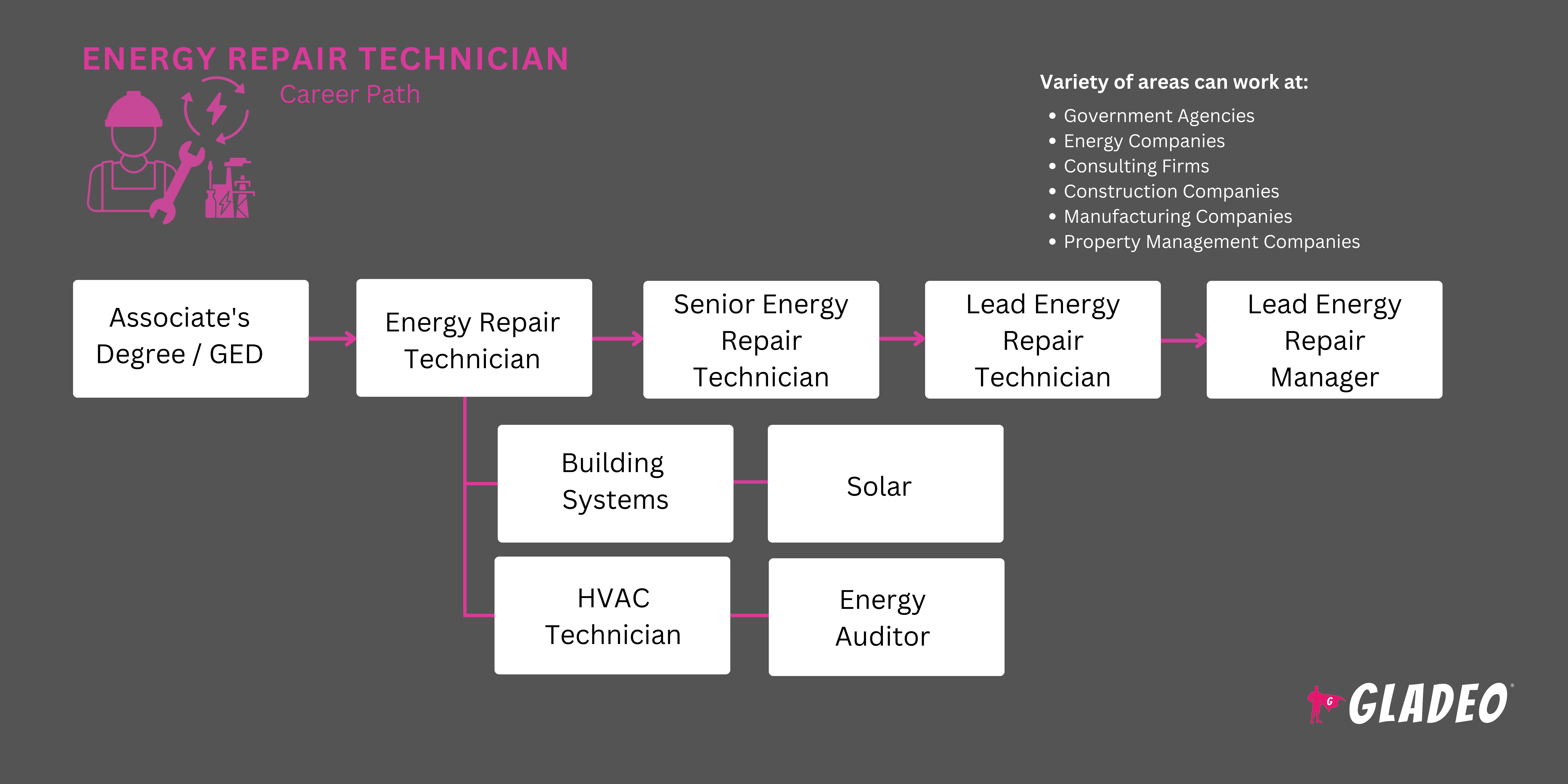
Cuando busques trabajo, ten en cuenta que existen numerosas posibilidades.
- Consulte ofertas de empleo en plataformas como Indeed y bolsas de trabajo específicas del sector como Energy Jobs Network.
- No te olvides de tu Craigslist local, o haz una búsqueda en Google de empresas energéticas locales y consulta sus páginas de empleo.
- Lee atentamente los anuncios de empleo para conocer los requisitos y la experiencia específicos que busca el empleador. Solicite sólo los trabajos para los que esté cualificado
- Toma nota de las palabras clave utilizadas en los anuncios de empleo. Intente incorporarlas a su currículum, si son aplicables.
- Busca en Internet plantillas de currículum adecuadas para obtener ideas sobre el formato, la redacción y las palabras clave.
- Acude al centro de orientación profesional de tu centro de estudios para que te ayuden a preparar el currículum y las entrevistas. Estudia la terminología y las tendencias del sector
- Pregunta a tu centro si tiene vínculos con empresas o reclutadores locales.
- Solicite periodos de prácticas, programas de aprendizaje registrados o puestos de nivel inicial para adquirir la experiencia necesaria y empezar a trabajar.
- Si haces unas prácticas o un aprendizaje, habla con tu supervisor/mentor sobre la posibilidad de un trabajo a tiempo completo.
- Haz saber a todos los miembros de tu red que estás buscando oportunidades de empleo
- Pregunta a antiguos supervisores y profesores universitarios si pueden servirte de referencia o escribirte una carta de recomendación.
- Vestir adecuadamente para las entrevistas de trabajo
- Discutir las opciones de progresión profesional con su supervisor y escuchar sus consejos.
- Buscar la tutoría de profesionales con más experiencia
- Comprender los objetivos empresariales de su empresa y la contribución de su función.
- Tome la iniciativa de realizar algunos cursos de formación continua, una certificación especializada o un título de nivel superior. Las credenciales de desarrollo profesional incluyen:
Instaladores y reparadores de líneas eléctricas
Certificaciones:
- Trabajador certificado en seguridad eléctrica
- Certificaciones de seguridad OSHA
- Certificación del Código Eléctrico Nacional
Formación continua:
- Programas avanzados de formación de linieros
- Formación en seguridad eléctrica y alta tensión
- Cursos de respuesta a emergencias y recuperación tras catástrofes
Distribuidores y despachadores de electricidad
Certificaciones:
- Certificación de Operador del Sistema (para Despachadores de Carga)
- Certificación de ensayos de potencia eléctrica
- Gestor energético certificado
Formación continua:
- Cursos de explotación y gestión de redes
- Formación sobre normativa y mercado de la energía
- Formación en gestión de emergencias y fiabilidad de sistemas
Reparadores eléctricos y electrónicos, centrales eléctricas, subestaciones y relés
Certificaciones:
- Certificación de la Liga Profesional de Reacondicionamiento de Material Eléctrico
- Certificación de técnico de relés
Formación continua:
- Cursos sobre sistemas eléctricos y control de relés
- Formación en explotación y mantenimiento de subestaciones
- Técnicas de reparación de maquinaria eléctrica
Reparadores de motores eléctricos, herramientas eléctricas y afines
Certificaciones:
- Certificación de la Asociación de Servicio de Material Eléctrico
- Certificaciones de reparación de motores
- Certificaciones de reparación de herramientas eléctricas
Formación continua:
- Cursos de reparación de motores eléctricos y generadores
- Técnicas de mantenimiento industrial y resolución de problemas
- Cursos de tecnología y reparación de baterías
- Ofrécete como voluntario en proyectos que supongan un reto para demostrar tu capacidad de adaptación y tu potencial de liderazgo.
- Manténgase al día de los avances en tecnologías relacionadas con la energía
- Participe en organizaciones profesionales para ampliar su red de contactos y aprender cosas nuevas.
- Sirva de mentor a los trabajadores subalternos o en prácticas. Comparta su experiencia, establezca expectativas y ponga el listón alto.
- Utilice siempre procedimientos de seguridad adecuados cuando maneje herramientas manuales y equipos motorizados, o cuando trabaje en condiciones potencialmente peligrosas.
Páginas web
- Consejo Americano para una Economía Energéticamente Eficiente
- Alianza para la Formación Eléctrica
- Instituto de Investigación de la Energía Eléctrica
- Energía.gov
- Aprendiz de especialista en energía
- ENERGY STAR
- ETA Internacional
- Contratistas eléctricos independientes
- Instituto de Ingenieros Eléctricos y Electrónicos
- Hermandad Internacional de Trabajadores de la Electricidad
- Asociación Internacional de Pruebas Eléctricas
- Consejo Interestatal de Energías Renovables
- Asociación Nacional de Contratistas Eléctricos
- Instituto Nacional de Certificación en Tecnologías de la Ingeniería
- Laboratorio Nacional de Energías Renovables
- Junta Norteamericana de Profesionales Certificados en Energía
- Administración de Seguridad y Salud en el Trabajo
- Asociación de Industrias de la Energía Solar
- Energía Solar Internacional
- Administración de Información Energética de EE.UU.
Libros
- Generación, transmisión y distribución de energía eléctrica, por Leonard L. Grigsby
- Turbinas de gas para la generación de energía eléctrica, por S. Can Gülen
- Generación de energía in situ: A Comprehensive Guide to On-Site Power Generation, por Electrical Generating Systems Association.
- Tecnologías de generación de energía, por Paul Breeze
Existe una amplia gama de puestos de trabajo que podrían englobarse bajo el término general de Técnicos de Sistemas Eléctricos. Entre ellos se incluyen:
- Reparador de baterías
- Instalador-reparador de cables
- Instalador/mantenedor de sistemas de cable
- Instalador de control de la corrosión
- Montador y comprobador de motores eléctricos
- Reparador eléctrico y electrónico (central eléctrica, subestación y relé)
- Técnico de pruebas eléctricas de campo
- Instalador y reparador de líneas eléctricas
- Electricista, central eléctrica
- Electricista, Subestación
- Reparador de motores eléctricos y herramientas eléctricas
- Electricista de alta tensión
- Montador de líneas (montador de distribución de líneas eléctricas)
- Despachador de carga
- Distribuidores y despachadores de electricidad
- Montador de distribución de líneas eléctricas
- Reparador de transformadores de potencia
- Técnico de relés
- Operador de subestación
- Operador de centralita (servicios públicos)
- Reparador de transformadores
- Trabajador de líneas de transmisión
Además de lo anterior, pueden ser de interés otros campos profesionales, como:
- Técnico en automatización de edificios
- Carpintero
- Trabajador de la construcción
- Ingeniero de sistemas de control
- Ingeniero Eléctrico
- Comprobador de equipos eléctricos
- Gestor de proyectos eléctricos
- Inspector de seguridad eléctrica
- Diseñador de sistemas eléctricos
- Electricista
- Técnico en electrónica
- Consultor de eficiencia energética
- Acristalamiento
- Técnico de residuos peligrosos
- Mecánico de calefacción, aire acondicionado y refrigeración
- Auditor energético doméstico
- Electricista industrial
- Técnico de instrumentación
- Ferretero
- Albañil
- Especialista en salud y seguridad en el trabajo
- Fontanero, instalador de tuberías, instalador de vapor
- Técnico de energías renovables
- Techador
- Ingeniero de redes inteligentes
- Instalador de paneles solares
- Especialista en recursos hídricos
- Técnico de aerogeneradores
Newsfeed

Trabajos destacados

Cursos y herramientas en línea





